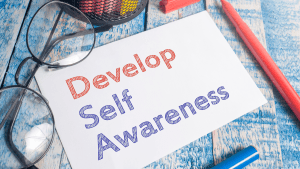Introduction to Leadership and Its Importance
Leadership is an essential aspect of any organization. It is the ability to inspire and guide a group of people towards a common goal. A leader is someone who has the qualities of vision, influence, and passion to guide and motivate others. Leadership is not only important in the business world, but it is also essential in politics, education, sports, and any other field where people interact with each other.
A great leader is not born but made. Leadership is a skill that can be learned and developed with time and effort. In this article, we will discuss the qualities of a great leader, why they are important, ways to cultivate leadership qualities, the significance of leadership skills, the importance of self-reflection in leadership development, and strategies for improving leadership skills.
Qualities of a Great Leader
A great leader possesses a set of unique qualities that distinguish them from others. These qualities include vision, communication, problem-solving, empathy, integrity, and accountability.
Vision is the ability to see the bigger picture and set a clear direction for the team. A great leader has a vision of where the team should be in the future and knows how to get there. Communication is another important quality. A great leader communicates effectively and listens to others. They are skilled in conveying their ideas to others in a way that is easy to understand.
Problem-solving is also a crucial quality of a great leader. They are skilled in identifying problems and finding solutions to them. They are not afraid to take risks and make difficult decisions. Empathy is another important quality. A great leader is empathetic and understands the concerns and feelings of their team members. They are supportive and encouraging.
Integrity and accountability are also important qualities of a great leader. They are honest and ethical in their dealings with others. They take responsibility for their actions and decisions, and they hold themselves accountable for their team’s success or failure.
Why Leadership Qualities are Important
Leadership qualities are important because they determine the success or failure of a team. A great leader can inspire and motivate their team to achieve their goals. They can create a positive work environment and foster a sense of community within the team. This, in turn, leads to increased productivity, better decision-making, and higher levels of job satisfaction among team members.
On the other hand, a poor leader can lead to a toxic work environment, low team morale, and high turnover rates. Poor leadership can also lead to poor decision-making and a lack of direction within the team.
Ways to Cultivate Leadership Qualities
Leadership qualities can be cultivated through training, self-reflection, and practice. Here are some ways to cultivate leadership qualities:
- Attend leadership training programs or workshops
- Read books on leadership
- Seek feedback from team members and colleagues
- Practice self-reflection and identify areas for improvement
- Set goals for personal and professional development
- Take on leadership roles in volunteer organizations or community groups
Leadership Skills and Their Significance
Leadership skills refer to the specific abilities and competencies that a leader needs to be effective. These skills include communication, problem-solving, decision-making, delegation, and time management.
Communication skills are essential for a leader to effectively convey their ideas and vision to their team. Problem-solving and decision-making skills are important for a leader to identify problems and find solutions. Delegation is crucial for a leader to effectively manage their team and ensure that tasks are completed on time. Time management is also important for a leader to prioritize tasks and manage their workload effectively.
Importance of Self-Reflection in Leadership Development
Self-reflection is a critical aspect of leadership development. It involves taking the time to reflect on one’s actions, decisions, and behaviors to identify areas for improvement. Self-reflection helps a leader to become more self-aware and develop a better understanding of their strengths and weaknesses.
Self-reflection also helps a leader to identify their blind spots and biases. It enables them to recognize how their actions and decisions may impact others and make changes accordingly. Effective self-reflection involves asking oneself tough questions and being honest about the answers.
Strategies for Improving Leadership Skills
Improving leadership skills requires a combination of self-reflection, practice, and seeking feedback from others. Here are some strategies for improving leadership skills:
- Set goals for personal and professional development
- Seek feedback from team members and colleagues
- Practice communication skills through public speaking or writing
- Take on leadership roles in volunteer organizations or community groups
- Attend leadership training programs or workshops
Common Mistakes to Avoid in Leadership
Leadership is not easy, and even the best leaders make mistakes. Here are some common mistakes to avoid in leadership:
- Micromanaging team members
- Failing to communicate effectively
- Failing to delegate tasks effectively
- Not being open to feedback
- Failing to recognize and acknowledge team members’ contributions
Building a Leadership Development Plan
Building a leadership development plan involves identifying areas for improvement and setting goals to achieve them. A leadership development plan should include the following:
- A self-assessment of leadership skills and qualities
- Identification of areas for improvement
- Goals for personal and professional development
- Strategies for achieving these goals
- Target dates for achieving these goals
- A system for tracking progress and measuring success
Conclusion: Becoming a Great Leader Takes Time and Effort
Becoming a great leader takes time and effort. It involves cultivating the qualities of vision, communication, problem-solving, empathy, integrity, and accountability. It also requires developing leadership skills such as communication, problem-solving, decision-making, delegation, and time management.
Effective leadership development involves a combination of self-reflection, practice, and seeking feedback from others. It also requires a willingness to make mistakes and learn from them. By following the strategies outlined in this article, anyone can become a great leader and inspire others to achieve their goals.











